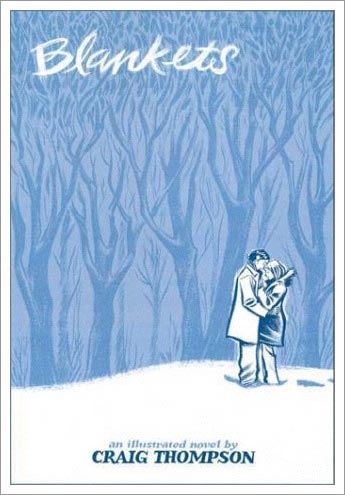The Curious Incident of the Dog in the Night-Time, by Mark Haddon
Doubleday Books, 2003. 240pp.
You have to keep your eye on Ken, he spits on people. Thanks in part to a severe overbite, he's capable of producing vast reserves of viscous saliva.
He snaps at people too. Again, it's the overbite. They look harmless: teeth wide and blunt, cantilevered against the luster of his gums, but he sent Miss Jenny to the hospital for stitches. Two neat gouges in her forearm, as though she'd been struck with the removing end of a claw hammer.
Ken is autistic. Unable to communicate save for rudimentary sentences constructed with pictograms (I want blue ball now. I like cheeseburger and fries.), he requires help with the most basic of human activities. Dressing, using the restroom, going through the lunch line; all accost Ken with unique obstacles. There's often screaming involved.
But Ken is not stupid. Though he can neither read nor speak, there's a certain intelligence in his eyes. I can't quantify it, but it's there. A trace of... laughter? It's as if he pities me and my rigid perception of the world.
This notion of pity, of condescension for the 'normal' is the gimmick behind Mark Haddon's The Curious Incident of the Dog in the Night-Time. It's a good gimmick; the sort that forever alters readers.

Fig1. The Curious Incident of the Dog in the Night-Time
Narrated by an autistic teen (of significantly higher function than my friend Ken) the book offers a glimpse into a life riddled with irrational fears, an utter lack of emotion, and an astonishing faculty for mathematics. Fingered as the murderer of Wellington, a neighbor's poodle, Christopher John Francis Boone is determined to clear his name.
Far from the passive, fragile savant of Rain Man, Christopher actively determines his own course. Rather than bear the weight of a false accusation, he emulates his hero Sherlock Holmes and undertakes a proper, orderly investigation.
But investigation necessitates a certain lack of order and routine, something Christopher cannot tolerate. Ordinary activities take on an impenetrable complexity. Christopher struggles through interactions with strangers, skillfully avoids the authorities, and manages -- over the course of several hours -- to navigate the London underground.
In the process, he inadvertently relates the story of his parents with clarity and sensitivity. Scarred and frightened by their love for a child with whom they cannot relate, theirs is a story of hardship equal to Christopher's own.
Haddon writes from a perspective alien to most readers. Not since Flowers for Algernon has an author captured such a unique mindset. In this, he's taking a great risk; barring a sequel, Haddon will have great difficulty meeting readers expectations with a second novel. But judging a book by its author's as yet unwritten followup effort is decidedly unfair. The Curious Incident of the Dog in the Night-Time is an eminently readable and uniquely enjoyable book.
Blankets, by Craig Thompson
Top Shelf Productions, 2003.
Dubbed a modern classic by the New Yorker and various academic institutions, Chris Ware's Jimmy Corrigan, The Smartest Kid on Earth legitimized the graphic novel. Sequential storytelling is the subject of both dissertations and book club discussions, and reading comic books, provided they're sufficiently underground, is altogether fashionable.
But the shadow of Jimmy Corrigan looms large. Being caught with anything else invites scorn and derision. The comic book is still seen as material better suited for a niche audience. Specifically, adolescent boys who've yet to discover girls and require parental transportation from the mall after a Star Trek film. Comics are hip, yes, but only to an extent. One must be careful with the sort of material they're seen with. Pendulous breasts and tight costumes must be scrupulously avoided.
But given its sheer bulk, Craig Thompson's Blankets demands respect. Mass alone, however, does not a novel make. Is it a comic book? Sure. A contiguous, 600-some page comic book. Quantified in terms of information conveyed, it ranks with the greats: War and Peace, The Brothers Karamazov, Don Quixote, and other such epic tomes.

Fig2. Blankets
Throughout, Blankets is drawn with a warm simplicity that, inexplicably, manages to convey enormous detail. Thompson renders chapters of text with nothing more than a few strokes of his pen. Ware managed the same with Jimmy Corrigan, but his minimal style is cold and detached; the clinical gaze of a draftsman. Thompson's art is a refreshing Florida vacation from Ware's bitterly cold Chicago winter. And while Ware communicated a certain painful awkwardness through generations of skittish Corrigans, Thompson's self portrait presents the universal difficulties of family and love with far greater acumen.
Under the watch of a fiercely Christian family, Blankets represents Craig Thompson's coming of age. He wrestles with the idea of serving as a role model for his younger brother, somehow manages to make it through Bible camp, and lands his first girl friend. This is fairly commonplace narrative, but Thompson alternates his recounting, shifting focus from the tortures of third grade bullies to a fumbling loss of virginity.

Fig3. Craig Thompson signing his book at the Wizard World comic convention last week.
Readers experience -- seemingly firsthand -- a farm country, Bible belt adolescence. We are vicariously included on an initial holding of hands on a frozen lake, the hacking cough of a first toke, and the arduous labor of "picking stones" as a field is prepared for planting. Thompson's writing and artwork is so immersive that his extraordinary upbringing seems commonplace. Bible camp? Field work? These are taken in stride, just as they were for Thompson himself, who knew nothing else.
Blankets is a solid addition to the realm of literature. Though it will inevitably be shelved with hard-bound volumes of Thor, Batman and Wonderwoman, it's capable of standing on its own in the fiction aisles. That pictures are involved is inconsequential; read it on the train with impunity.





